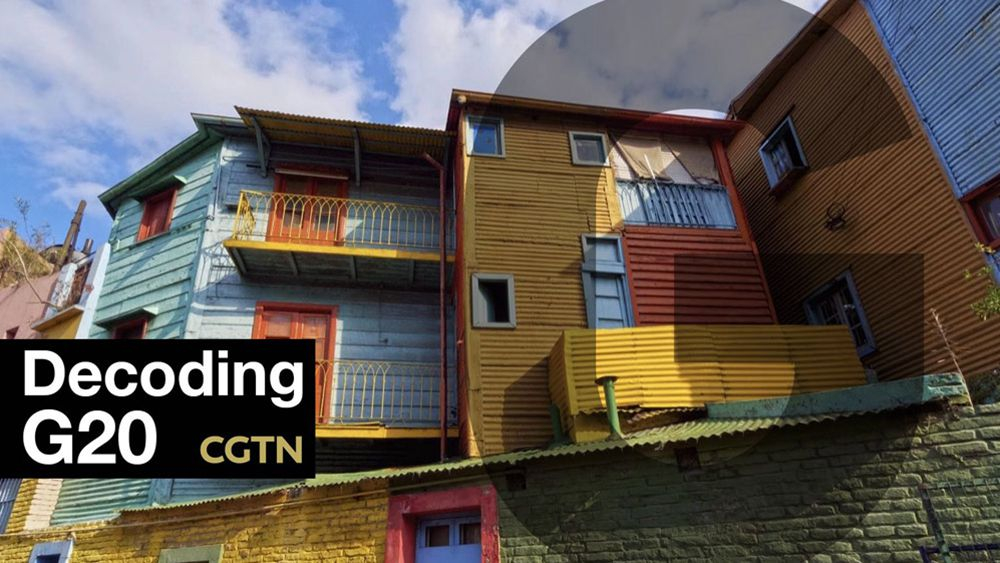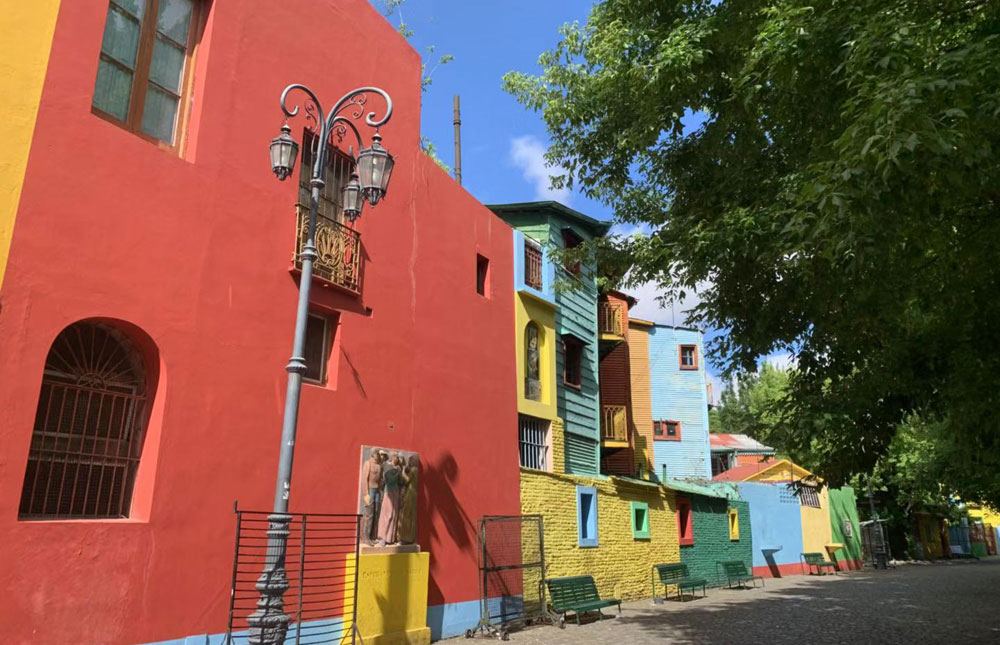
World
13:00, 26-Nov-2018
Decoding G20: Argentina eyes opportunities amid challenges
Updated
12:57, 29-Nov-2018
CGTN

Argentina is ready to seize the opportunity of hosting the 2018 G20 Summit to reinvigorate its economy and return to the international market amid a struggling global economic recovery.
As the first summit to be held in South America, the G20 summit in Buenos Aires also marks the tenth anniversary of the G20 Leaders Summit, the first of which was held in Washington D.C. in 2008. But for Argentina, hosting this summit is more than pride.
Argentina currently holds the organization's rotating presidency.
Once ranked as the seventh wealthiest developed nation in the world in the early 20th century, the country is now going through a series of austerity measures introduced by President Mauricio Macri to tackle inflation and public deficits, which have beset the country for decades.

A view of Caminito at La Boca in Buenos Aires, November 24, 2018. /CGTN Photo
A view of Caminito at La Boca in Buenos Aires, November 24, 2018. /CGTN Photo
Only reforms on its domestic market are indeed not enough for the second largest economy in South America to regain its glory at the beginning of the last century and better enjoy the benefits of rapid globalization.
There is nothing better than hosting G20 leaders summit in Buenos Aires, also lauded as "Paris in South America", to gain global attention toward the country's potential market.
"At the beginning of 2018, Argentina experienced financial market fluctuations and sharp depreciation of the peso. Hosting the G20 summit definitely gives the country a great chance to showcase itself as an economy where the financial institutions worldwide can invest in with confidence," said Liu Jianna, an opinion writer with China Daily.
The G20 summit hosts governments and central bank governors from the European Union and countries including the United States, the United Kingdom and China to tackle global issues such as the international financial crisis and climate change.

A combine harvests soybeans at a farm near Salto, in the north of Buenos Aires, May 26, 2013. /VCG Photo
A combine harvests soybeans at a farm near Salto, in the north of Buenos Aires, May 26, 2013. /VCG Photo
"Due to the most severe drought in 50 years, the export of farm produce in Argentina has suffered a lot. Besides, the peso may face another round of depreciation as the Federal Reserve might raise interest rate in December. Hosting G20 also gives the country a chance to be confident in itself and seek help from other countries," Liu said.
At present, U.S. President Donald Trump pursues "America First" and protectionism, pushing some countries including Argentina to look for more partners.
"As protectionism is increasingly serious in [the] U.S., it's more urgent for the countries in South America to expand cooperation with the dynamic economies including [the] EU and APEC in a bid to recover their economy," said Lv Yang, an expert on Latin Americas from China Institutes of Contemporary International Relations.
While initially initiated as a platform of global economic governance in 2008, the G20 summit has followed the spirit of partnership and devoted to global economic recovery and growth through policy coordination and cooperation.

The Obelisk of Buenos Aires, November 25, 2018 /CGTN Photo
The Obelisk of Buenos Aires, November 25, 2018 /CGTN Photo
"It (G20 summit) is a place that you dialogue. And having this dialogue you know what's the sense of the world, where it's going and how we should react. And you will hear important partners say that, listen, pay attention to this or that," Argentine Foreign Minister Jorge Faurie was quoted by China Daily as saying.
In September 2016, the G20 summit was held in eastern China's Hangzhou city. The summit provides solutions to the fundamental problems hindering the global economic development.
As another large developing country, Argentina also wants to have a successful summit like that in China, whose achievements in the past 40 years due to the reform and opening up have amazed the world.
"While holding the G20 presidency, Argentina will continue the consensus and results achieved at the 2016 G20 summit held in the Chinese city of Hangzhou," said Argentine President Macri in an exchange letter to Chinese President Xi Jinping in May.

A federal police motorcycle with the G20 logo is pictured during the presentation of security equipment to be used at the G20 Summit in Buenos Aires, November 16, 2018. /VCG Photo
A federal police motorcycle with the G20 logo is pictured during the presentation of security equipment to be used at the G20 Summit in Buenos Aires, November 16, 2018. /VCG Photo
But Buenos Aires faces more challenges than Beijing to reap a fruitful summit.
On the one hand, the slow economic recovery and ongoing austerity measures in Argentina have provoked demonstrations, while its citizens have not felt the benefits of globalization.
And on the other hand, though the three priorities in 2018 G20 summit – the future of work, infrastructure for development and a sustainable food future – are in line with Argentina's ongoing domestic reform and certainly have global importance, they are set to be overshadowed by recent global trade tensions.
Despite the challenges, the "Paris in South America" is reportedly going all out for the upcoming G20 summit from November 30 to December 1.
Also in the Decoding G20 series:

SITEMAP
Copyright © 2018 CGTN. Beijing ICP prepared NO.16065310-3
Copyright © 2018 CGTN. Beijing ICP prepared NO.16065310-3